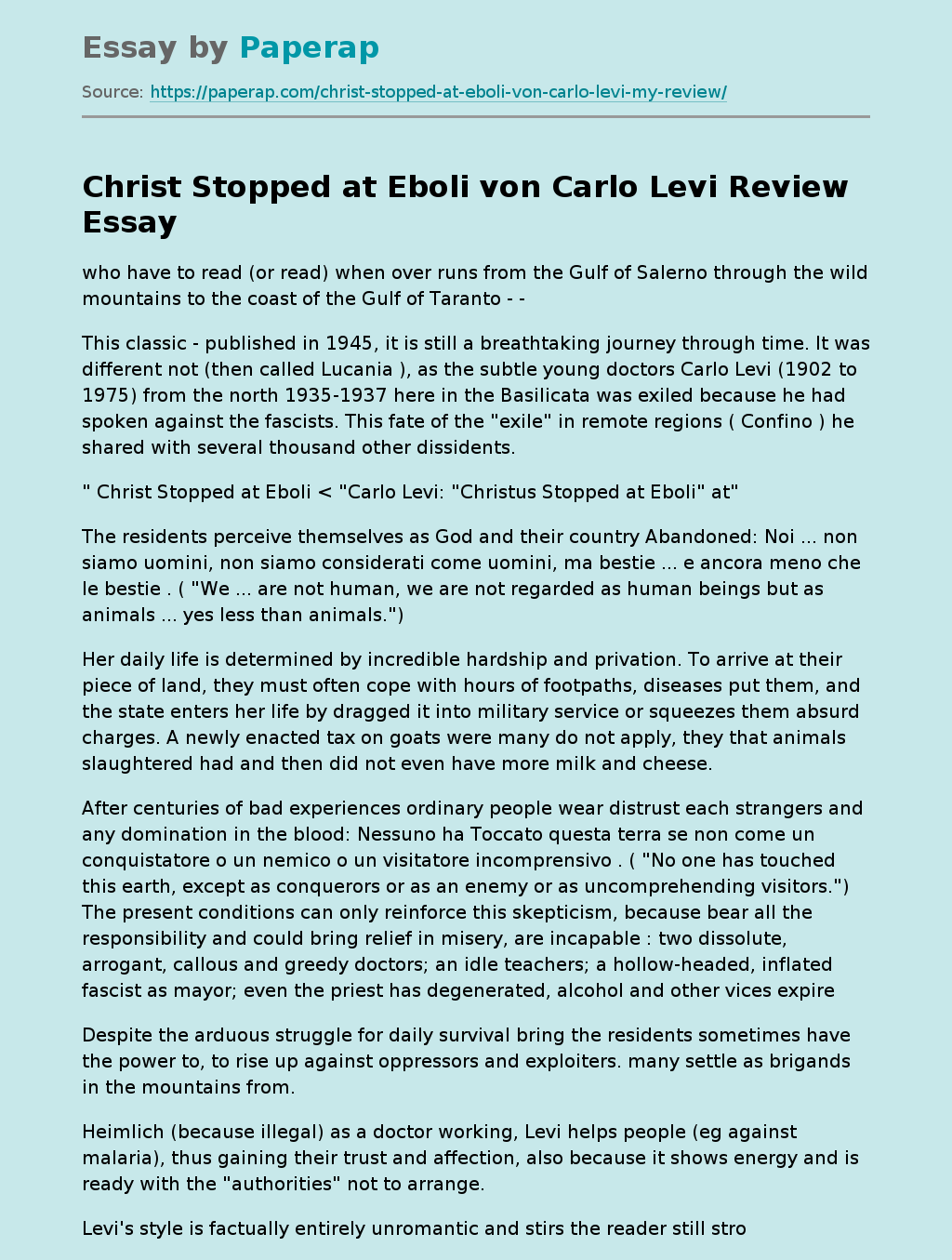"Christ Stopped at Eboli" by Carlo Levi
This classic – published in 1945, it is still a breathtaking journey through time. It was different not (then called Lucania ), as the subtle young doctors Carlo Levi (1902 to 1975) from the north 1935-1937 here in the Basilicata was exiled because he had spoken against the fascists. This fate of the “exile” in remote regions ( Confino ) he shared with several thousand other dissidents.
The residents perceive themselves as God and their country Abandoned: Noi … non siamo uomini, non siamo considerati come uomini, ma bestie … e ancora meno che le bestie .
( “We … are not human, we are not regarded as human beings but as animals … yes less than animals.”) Her daily life is determined by incredible hardship and privation. To arrive at their piece of land, they must often cope with hours of footpaths, diseases put them, and the state enters her life by dragged it into military service or squeezes them absurd charges. A newly enacted tax on goats were many do not apply, they that animals slaughtered had and then did not even have more milk and cheese.
After centuries of bad experiences ordinary people wear distrust each strangers and any domination in the blood: Nessuno ha Toccato questa terra se non come un conquistatore o un nemico o un visitatore incomprensivo . ( “No one has touched this earth, except as conquerors or as an enemy or as uncomprehending visitors.”) The present conditions can only reinforce this skepticism, because bear all the responsibility and could bring relief in misery, are incapable : two dissolute, arrogant, callous and greedy doctors; an idle teachers; a hollow-headed, inflated fascist as mayor; even the priest has degenerated, alcohol and other vices expire.
Despite the arduous struggle for daily survival bring the residents sometimes have the power to, to rise up against oppressors and exploiters. many settle as brigands in the mountains from.
Heimlich (because illegal) as a doctor working, Levi helps people (eg against malaria), thus gaining their trust and affection, also because it shows energy and is ready with the “authorities” not to arrange. Levi’s style is factually entirely unromantic and stirs the reader still strongly influenced by the immediacy of the report and of course the Unheard awareness of what he describes. The title expresses metaphorically that this area is left in the mountainous inland from God, yes that it was not only his grace given. (Eboli is Salerno, that is still in civilization.) The book was made into a film in 1978 by Francesco Rosi.
"Christ Stopped at Eboli" by Carlo Levi. (2019, Nov 18). Retrieved from https://paperap.com/christ-stopped-at-eboli-von-carlo-levi-my-review/

